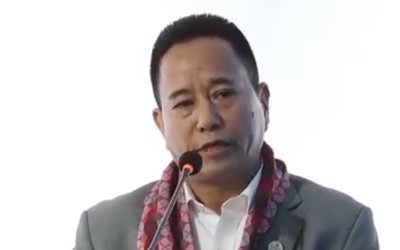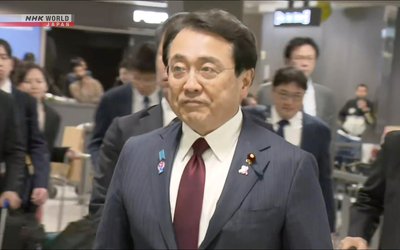More on News





Whether it is in education, health, drinking water, sanitation, rights based issues or reaching to the poor, International NGOs working in Nepal have been making immense contributions, which are visible in the country’s overall progress.
Out of more than 200 International Non-governmental Organizations registered in Nepal, 103 are members of the Association of International NGOs (AIN), which brings over 8 billion rupees annually in Nepal. Out of this, 25 members of AIN spend over 1.3 billion rupees in the education sector.
At a workshop on the Role of INGOs in Education sector, organized by the Education Working Group of AIN, various speakers discussed the contributions made by AIN members. Inaugurated by Joint secretary of Ministry of Education Janardan Sharma, the workshop saw various papers presented by experts.
Sharma hailed the role of INGOs, particularly the members of AIN, supporting the government’s plan to improve education in the country.
“In more than 60 years of contribution in education development in Nepal, INGOs introduced the global level best practices and worked hand in hand with the government priorities and programs,” said Kshitij Raj Prasai, coordinator of Education Working Group of AIN. “Twenty seven members associated in EWG allocated nearly NRS. 1,26,000,0000 for education sector annually. They covered 70 districts focusing on formal education (basic education development, especially quality education and infrastructure). Along with working in infrastructure, they have also been introducing Global level Innovative practices and working in grass roots in coordination with relevant organizations.
According to the reports, major players in education in terms of budgetary allocation are Room to Read, Save the Children, Plan Nepal, Care Nepal, World Education, World Vision International, UMN and VSO. They support the government programs and work in coordination with government agencies both at the central and district levels and complement to the government priorities.
Sharing the experiences on Community Library supports towards education, Sanjana Shrestha, country director of READ, highlighted how libraries are helping empower women and marginalized communities as well. Rohit Pradhan of World Vision highlighted citizen voices and action and education.
United Mission’s Yagya Raj Pant shared how education helped empower women.
Along with this, the EDG also supported formation of NGO coordination forums, sharing of successful/best practices from organizations, awareness raising, participation in campaigns and movements such literacy, enrolment, capacity development of NGOs and local organizations. Moreover, AIN members also supported ECD development, formal education (Primary and basic education support including infrastructure development), capacity development (teachers, SMC, PTA, facilitators), vocational education, non formal education, library support, gender development, inclusive education, Scholarship support and material support and publications.





